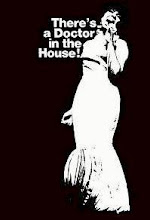 |
| Ella Washington & John Richbourg (both photos from BB, Dec. 21, 1968) |
 |
| BB Nov. 23, 1968, p. 29 |
The self-titled LP came with a funky cover, but actually offers mainly a superb panorama of deep southern soul, mostly in the ballad-vein. Billboard's critic was much taken in with Ella's »overdue debut album« and demanded »the major market treatment« (Aug. 9, 1969). This didn't happen, although it's hard to see, in retrospect, why. Sound Stage 7 tried to push the album by putting out singles even after the LP release, so that eventually nine of the 12 LP tracks were available on 45 in 1969. However, the LP went largely unnoticed at the time.
 |
| Photos from the back cover of her self-titled SS7 LP: Ella Washington at the recording studio, to the left with Allen Orange & Bob Wilson, to the right with John Richbourg. |
The mono mixes of all recordings we find on this LP were re-issued in 2008 on the Soulscape CD # SSCD 7014, together with the other SS7 recordings (some hitherto unissued) and a fine booklet by John Ridley (see his webpage here). My LP (a promo copy) has the stereo mixes, so it nicely supplements the CD. The obvious choice of what I would be posting tonight from this LP are two songs, viz. »Sit Down And Cry« (a Clyde Otis tune) and »All The Time« (a Mel Tillis tune). First, these two wonderful songs were never released as 45s. Second, and more importantly, they are just plain great soul ballads and very much define the best of what Ella was recording in the late '60s ... or rather, what any female artist was recording, really.
Ella Washington: »Sit Down And Cry« / »All The Time« from the Sound Stage 7 LP # 15007 (1969):
* * *
NOTE. For more information on John Richbourg, read also Nelson George's thoughtful remembrance in Billboard's »The Rhythm & The Blues« column in the April 19, 1986, issue (page 27).



.jpg)


.jpg)










I remember hearing 'He Called Me Baby' many years ago and not being impressed by her version. But after listening to 'Sit Down and Cry,' ( which really shows off her voice), I decided to seek it out on YouTube. Perhaps the version that I heard so long ago was a re-recording, but I had a completely different reaction to it this time. Thanks for posting these, H.M.S.,; otherwise, I might not have checked Ella out again.
ReplyDeleteP.S. I'll be launching again in a new location soon, so I'll let you know.
You know, I always felt the same and still do: Ella's "He Called Me Baby" is not all that great record, and I think for two reasons: First, she sings it constantly in a very high register and her voice loses much force up there, risking to become faint and "pitched" in the tricky passages, and second, because the song (at least in this arrangement) doesn't offer too much for the singer to excel, really (apart from the lyricality). "Sit Down" is just a much better tune, I'd say, it has some soaring passages and a beautifully built-up final climax. And she "sings it up from below" what suits her voice much better. (Same holds true, more or less, of "All the Time", though it's the less spectacular tune) BTW, remarks on the subtleties of vocal art tend to test the limits of my English, so I don't know whether I put my thoughts across well ...
ReplyDeletePS Looking forward to your new location!